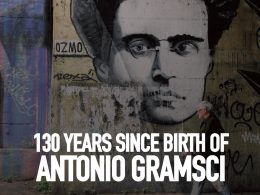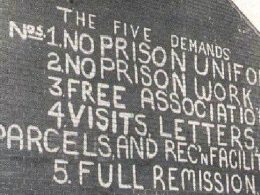By Eddie McCabe
In part 1 of this article we explained how the working class, in its resistance to capitalist exploitation, oppression and destruction, will form many kinds of organisations. These can at different times and in varying ways contribute to the working class’s struggle against capitalism. But that struggle either ends with the overthrow of capitalism through socialist revolution, or it doesn’t end (and the depressions, pandemics, wars, and climate change all get worse). For any attempt at revolution to be successful, however, the working class needs revolutionary leadership; it needs to build a revolutionary party.
Here in part 2 we’ll explain a bit more about what a genuine revolutionary party is.
Every political organisation is defined by its programme; what it stands for. A programme in the fullest sense is not just a list of demands but the distillation of its aims, principles and orientation, and a guide to its practice. A revolutionary party is one that struggles for and continually develops – finessing, revising and adapting in light of new experiences – a revolutionary programme.
Fundamental to this are the grounding theories and methods on which the party and programme are based. In the case of a revolutionary party, this is the Marxist method – the ideas of Karl Marx and the revolutionary tradition he inspired, which reached its highest point with the Bolshevik-led Russian Revolution in 1917. While the world revolution Lenin and the Bolsheviks aimed for didn’t take hold, and the revolution in Russia was internally betrayed under Stalin’s dictatorship, they nevertheless showed in practice that the working class could overthrow capitalism.
As such, the theories and methods that guided those revolutionaries can and should be utilised by revolutionaries today, creatively adapting them in light of all of the changes in the last century.
If an organisation stands for the overthrow of capitalism and is pursuing a serious strategy to bring this about, it can of course claim to be revolutionary. But just having a revolutionary programme doesn’t make a revolutionary party – at least in the Marxist sense. Otherwise any tiny groupuscule that declares its seditious ambitions could be considered a revolutionary party. A genuine revolutionary party, however, cannot simply be declared into existence; it must be built in and through the struggles of workers, young people and the oppressed.
Just as the working class can’t liberate itself without the organisation and leadership of a revolutionary party, a revolutionary party can’t realise its programme if it doesn’t organise and lead the working class, or more precisely: its most advanced, class conscious layer – its vanguard.
This vanguard layer emerges organically in every struggle, and generally in society, comprising those most active and committed participants in the struggle. Naturally, this represents a (mostly small) minority of the working class, but its militant actions – especially when organised and sustained – can be incredibly impactful on the rest of the working class, and on society as a whole. A revolutionary party should be the party of this vanguard, striving to be its leadership.
Building a genuine revolutionary party, then, is no easy matter. A small revolutionary organisation can become, in the right conditions and with the right political and tactical approach, a mass revolutionary organisation – including potentially through mergers with other revolutionary groups. But two things are vital to a revolutionary organisation at all stages:
One is the training of ‘cadres’ – experienced activists with the ability to analyse and act both independently and as part of the collective. A party of cadres is a party of ‘professional revolutionaries’, not in the sense of it being their full-time job, but in the sense of it being their main vocation – what they put their time and energy into. Without this commitment and sacrifice by its members a revolutionary party won’t overcome the odds stacked against it at all times, least of all in times of revolution.
And two, is being organised around ‘democratic centralist’ principles of the fullest freedom of discussion when deciding on perspectives and policy, and the utmost unity in action when carrying out the agreed policy. Without this combination of democracy and unity, which has to be flexibly adapted to circumstances, the development and implementation of the revolutionary programme would be hugely impaired.












